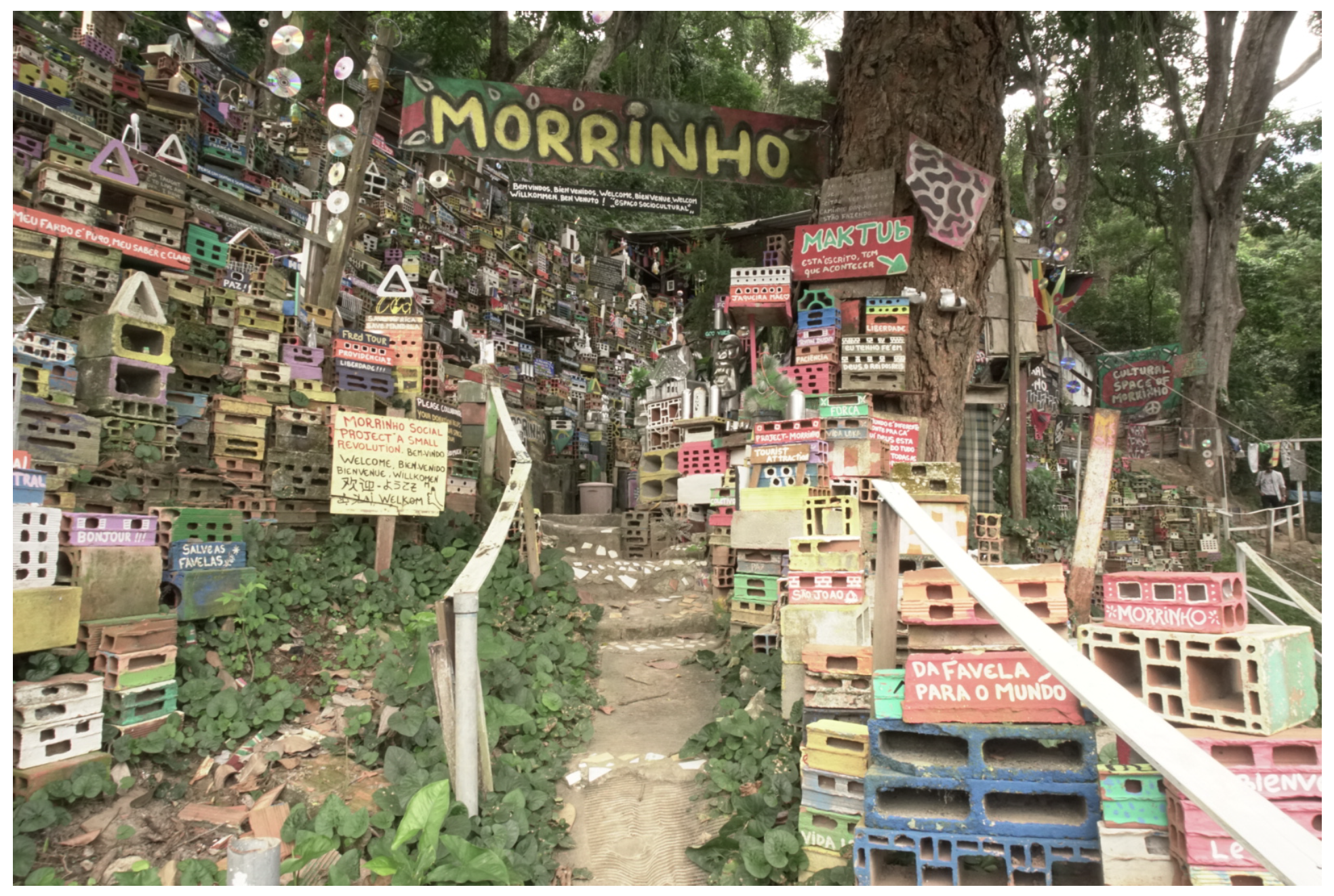Rio de Janeiro, Brazil is a city that has experienced a widely unequal development of citizenship. The core and the periphery of the city are in one way, entangled, and in another divided by social and political boundaries that have developed in the psyche and practices of its residents. Recent literature on the city discusses the emergence of social actors from the cities margins who are using art, culture, and play to challenge hegemonic and discriminatory narratives.
Over the summer of 2017, as part of the New School’s International Field Program, I had the opportunity to work with an organization called Projeto Morrinho. Morrinho is a model favela that began as a form of children’s play. As the children grew into adults they became world-renowned artists, filmmakers, educators, and hosts to curious tourists from around the world. Morrinho became a space for the engagement with a set of citizenship practices aimed at building a more equitable city. The evolution of this project within a historical context of inequality reveals key insights about the many ways that people seek to live with dignity and agency in spaces where those values are threatened.
This is the student capstone project of Maya Mehta.

